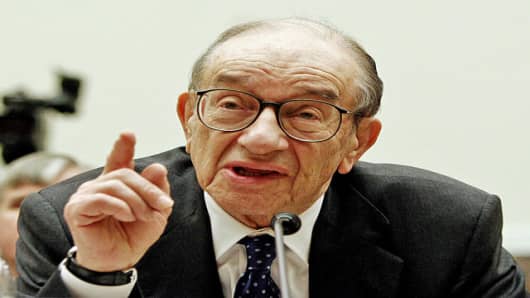Former Federal Reserve Chairman Alan Greenspan has defended himself from charges that easy U.S. monetary policy created the current credit crisis by inflating a housing bubble, and instead blamed professional investors.
In an article in Monday's Financial Times newspaper, Greenspan wrote that the housing bubble which inflated between 2001 and 2006 had not been unique to the United States.
"The U.S. bubble was close to median world experience and the evidence that monetary policy added to the bubble is statistically very fragile," Greenspan wrote.
Under Greenspan the Fed cut rates from 6.5 percent in late 2000 to 1.0 percent in mid-2003.
_________________________________________________
_________________________________________________
Most other leading central banks followed suit, although not to such low levels apart from the Bank of Japan.
The Fed has been accused of keeping rates too low for too long as it sought to help the U.S. economy following the collapse of internet stocks and the blow to confidence from the Sept. 11, 2001 attacks.
But Greenspan noted that U.S. economic conditions were still sluggish as late as June 2003, when the Fed cut rates to the 1.0 percent low.
It began raising them a year later but even then, he said, monetary conditions were not bubble-making.
"Both the monetary base and the M2 indicator rose less than 5 percent in the subsequent year (2004), scarcely tinder for a massive credit expansion," he wrote.
Instead, Greenspan placed blame for the U.S. housing and subprime mortgage crisis at the door of investors.
"The core of the subprime problem lies with the misjudgments of the investment community," he wrote.
Subprime-mortgage securitisation exploded because it appeared mis-priced and there were few delinquencies and defaults, "creating the illusion of great profit opportunities."
Lenders were then pressed by securitisers for mortgage paper "with little concern about its quality." Greenspan also said he doubts tightening of regulation would have solved the problem.
"The problem is not the lack of regulation but unrealistic expectations about what regulators are able to prevent," he wrote.


